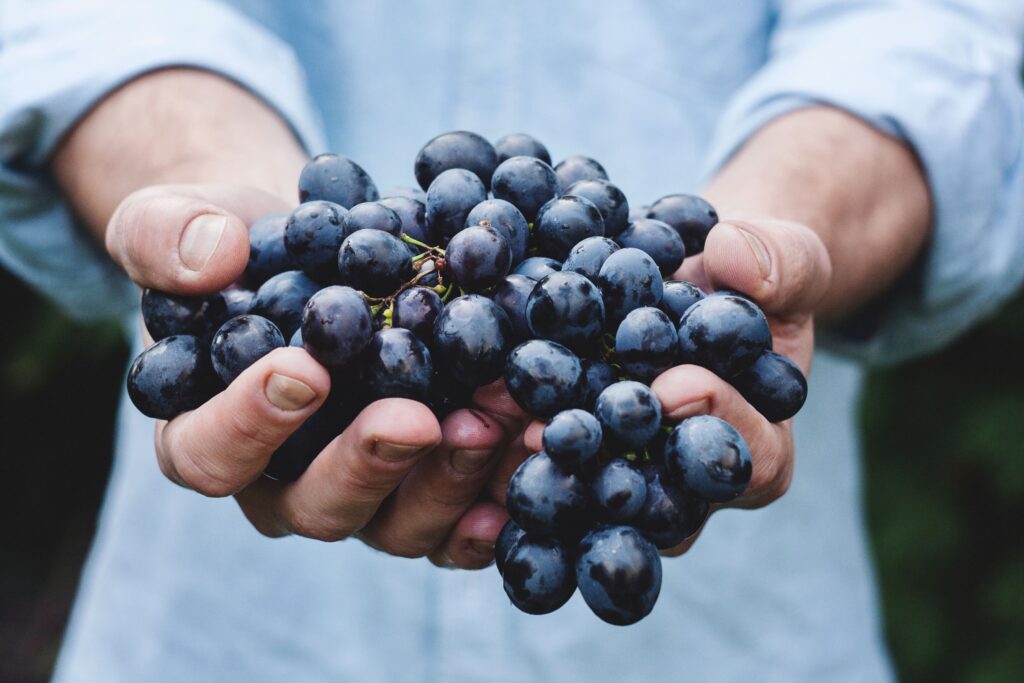Natural wine is a huge buzz word in the wine community lately. You may have heard it at a winery, seen it in restaurants, noticed it in your local wine shop, or even tried it.
But what is it really? Lucky for you, we’ve got some answers to that.
A Tricky Timeline
Modern winemaking has become convoluted, scientific and technical. Let’s take it back a couple thousand years…
The earliest recorded evidence was discovered in Armenia and Italy around 6,000 years ago. Pouring a glass was a simple, slow process. Pure grapes were handpicked, and there were no additives involved.
In the mid-1900s this method resurfaced, piquing the interest of rural French winemakers. This sparked the modern natural wine movement, led by French pioneers Beaujolais, Chauvet and Lapierre. The first natural wine tasting event was held just twenty years ago by La Dive Bouteille in France.
This inspired smaller winemakers to begin producing and importing into the United States. The momentum is slow but steady, and has continued to pop up on more shelves in recent years. It’s good to note that since natural wine is still relatively new to the market, there is no official certification for wineries or vineyards to use.
What is Natural Wine?
Natural Wine: Pure, untreated, naturally fermented grapes. In other words, it’s unbridled, unfiltered, chemical-free goodness.
Pros:
- Everything is 100% found in nature
- Vineyards are not sprayed with pesticides or herbicides
- Grapes are hand picked
- Natural yeast is solely generated by the grape itself
- Little to no extra sulfites added
- The natural reduction in sulfites (approx. 10 – 35 parts/million) can make wine better for those who may have reactions to sulfite in other wine (up to 10x more).
Cons:
- Long, manual process for winemakers
- Challenging to store without sulfites
- The wine may appear cloudy and/or have a sour taste depending on your palate
- Not to worry, there are different varieties and flavors to explore, just like your average bottle.
Organic vs Biodynamic
As of today, it’s still difficult for mass producers to distribute. The solution?
Enter organic and biodynamic wine stage right.
Organic Wine 101
Organic wine in the US can have two different implications:
- “Made with organic grapes”
- Grapes grown without the use of pesticides or synthetics. There is also a limit on the number of sulfites that can be added.
- “Certified organic”
- Produced with organically grown grapes with no sulfites added. This is pretty rare as many winemakers still insist on adding sulfites.
- This doesn’t mean other things aren’t added to your wine…
Biodynamic Wine 101
Biodynamic wine takes a more holistic approach to winemaking. There is an emphasis on overall health of the vineyard, lunar cycles, and the entire farm ecosystem (beyond the grapes).
There are no synthetics used in growth or production, and no additional yeast, sugar, acid, etc. However, they will often still include added sulfites.
Biodynamic wine has two levels of certification:
- “Biodynamic certified estates” – Label always located on the back of the wine.
- “Biodynamic certified wines” – Label always located on the front of the wine.
Where to Buy Natural Wine
City dwellers may have an easier time accessing the right wine shop, but there are plenty of online options. Any new trend is is difficult to mass market, but there are still ways to get your hands on these wines.
Here are three general rules to start your search:
- Educate yourself on all your options
- Hint: You picked an excellent place to start
- Ask questions
- Hint: Find employees to speak with at your local wine store
- Have fun! Natural wine tasting is the same “regular wine” trial-and-error journey.
- Hint: Don’t let one bad wine deter you from finding your natural wine soulmate.
Can Natural Wine Defeat My Hangover?
Ahh… the age-old question.
There is no scientific proof on whether natural wine can cure all, but it can be a great place to start your own experiment. We all know hangovers and headaches are due to dehydration. Drinking alcohol depletes a lot of key nutrients from your system.
There are plenty of articles that explain why we feel so bad after a night of indulgence. But one stands out in particular – excessive sulfites.
Excessive Sulfites
Some folks recall feeling better after a night of drinking natural wine or wine with low sulfites compared to wine with higher levels.
Coincidence? Maybe. Maybe not.
If reducing sulfites is something you want to try out, I recommend being mindful of labels and giving natural wine a taste test.
You’re now ready to dive into the world of natural wines!
Cheers!
